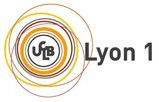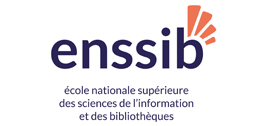Thèse de doctorat / PhD followership
|
|
|
Domaine de recherche: Santé, Mathématiques, Statistiques, Traitement du signal
Résumé / Abstract : La thèse s’effectuera dans le cadre du projet multidisciplinaire Brain Computer Interface (BCI) au CEA/LETI/CLINATEC® (Grenoble, France). L’objectif global du projet est d’améliorer l’autonomie des personnes avec un handicap moteur grave. Ce projet est basé sur la mesure de l’activité neuronale au niveau du cortex moteur cérébral (ElectroCorticoGramme - ECoG) et le traitement de signal en temps réel en vue de contrôler des effecteurs complexes avec plusieurs degrés de liberté tels que l’exosquelette de 4 membres. Le défi: il s’agit de la première étude BCI basée sur des mesures ECoG chronique avec des sujets tétraplégiques. La faisabilité de ce projet est rendue possible par les développements technologiques obtenus, en particulier, un dispositif implantable de mesure chronique d’electrocorticogrammes, nommé WIMAGINE®, a été développé. L’étude BCI basée sur des enregistrements chronique ECoG permettra un entrainement sur le long terme pour le contrôle d’effecteurs complexes en vue d’un usage au quotidien par des patients tétraplégiques. Pour cela, il est nécessaire de développer des algorithmes innovant de décodage en temps-réel de l’activité cérébrale permettant un contrôle robuste et précis d’un grand nombre de degré de liberté (pour le contrôle de plusieurs membres d’un exosquelette).
La mission du candidat consistera à élaborer des stratégies de décodage basées sur des approches séquentielles, hybrides et tensorielles, pour le contrôle d’effecteurs complexes pour usage au quotidien par des patients en situation de handicap. Le candidat sera amené à mettre en œuvre ces algorithmes (MATLAB/C++) et à les intégrer à la plateforme de logiciel du projet BCI.
Exposé du sujet / Topic
Context : The thesis will be carried out within the frame of the multidisciplinary project “Brain Computer Interface” at CLINATEC® located on the research technological center at CEA in Grenoble (Commissariat à l’Energie Atomique et aux Energies Alternatives). CEA/LETI/CLINATEC combines medical research and technological innovation at the same place to translate new solutions to patients. The Clinatec’s mission is to accelerate the development and clinical validation of innovative medical devices based on medical needs and using state-of-the-art technologies.
The goal of the “Brain Computer Interface” project at CEA/LETI/CLINATEC® is the proof of concept that it is possible to control complex effectors, such as a 4-limb exoskeleton, thanks to brain activity decoding to open new opportunities to motor disabled. The BCI project is based on the recording of neuronal activity at the level of cerebral motor cortex thanks to the WIMAGINE® implant dedicated to record ElectroCorticoGrams, ECoG. The real-time ECoG processing will allow controlling complex effectors with multiple degrees of freedom such as 4 limbs exoskeleton. A clinical research protocol « BCI and Tetraplegia » at CLINATEC® was authorized recently to include tetraplegic subjects. A set of decoding algorithms were developed by the CLINATEC® team to solve the problem of stable modeling. They are published in articles, defended by patents, tested in preclinical experiments in ECoG non-human primate data, and in healthy subjects using MEG (MagnetoEncephaloGraph) experiments.
Mission : The Mission of the PhD fellow will be developing and improving the real-time control algorithms for complex multi-limb effectors for robust and accurate functioning in laboratory environment and at home.
The challenges are:
- First multi-limb ECoG-based control (4limbs +hand) with subjects with tetraplegia.
- BCI at laboratory environment and at home.
- First long term stable ECoG recording based on a unique wireless 64-channel ECoG implant WIMAGINE® compatible with home use.
- First multi-electrodes ECoG chronic study will allow long term BCI training for complex effectors control.
To respond to the challenges the PhD fellow will
- Develop multi-limb hybrid (discrete/continuous) decoding strategy integrating state detection and accurate trajectory decoding and exploring the dependences in multi-frequency/multichannel sequential neuronal signal observations;
- Develop control strategies for different functional states (resting state, active states, reach/grasp, etc.). Balancing efficiency and security, algorithm will be optimized for the sequences of commands to allow suppression of false activations and decreasing of missing commands;
- Improve the robustness of neuronal signal decoding to be used in natural environment;
- Implement algorithms on MATLAB/C/C++ and integrate them to the BCI-CLINATEC software platform.
The candidate will be integrated into the signal processing team and will collaborate with a multidisciplinary team such as software and electrical engineers, biologists and medical doctors.
Profil du candidat / Candidate Profile: Engineer with strong knowledge in Signal processing, Applied mathematics, Machine learning, with skills in Matlab, C/C++ software development.
Unité d’accueil / Administrative information
Direction/Département/Service : CEA/ DRT / LETI / CLINATEC
Adresse postale : CEA/GRENOBLE 17 rue des Martyrs 38054 Grenoble CEDEX 9
Contacts
- CHARVET Guillaume / Téléphone : 04.38.78.20.08 / Email : guillaume.charvet@cea.fr
- AKSENOVA Tetiana / Téléphone : 04.38.78.03.20 / Email : tetiana.aksenova@cea.fr










